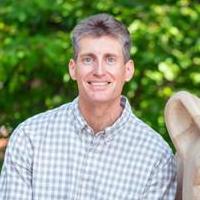Graduate Student Seminar
September 13, 2024
12:45 p.m. ET
Wean Hall 7500
September 13, 2024
12:45 p.m. ET
Wean Hall 7500
The hunt for new phases of matter is among the most exciting activities in materials research. The excitement originates from the possibility of active property engineering and advanced technology opportunities that serve societal needs. As a community, we have been looking for a long time, and given the finite number of practical elements and their stable combinations, it is not clear how many are left to find especially if we limit ourselves to conventional tactics. In response, researchers are exploring new approaches that include artificial layering, high throughput computation, severely confined dimensions, and strain-stabilization.
Inspired by explorations of high-entropy alloys, this presentation discuss the concept of entropy engineering in non-metals, which is a parallel path to new materials discovery. In this approach, many cations are distributed at random among a single sublattice creating a high degree of configurational disorder. At finite temperatures, these systems can minimize free energy by remaining single phase. The Maria group extended this concept to complex oxides to demonstrate without ambiguity that new phases of matter can be stabilized by configurational disorder.
The presentation will begin with an overview of high-entropy non-metals that highlights the exciting contributions being generated by the international high-entropy research community. This will be followed by a discussion of property engineering opportunities that are potentially exclusive to crystals having a predominant entropic contribution. They include nanostructure engineering, extreme refractoriness and hardness, ionic conductivity, and spin-orbit coupling. In each example, we promote the case that the high solubility in the solid state that accompanies the high configurational entropy condition is the enabling factor.
 Jon-Paul Maria, Professor of Materials Science and Engineering, The Pennsylvania State University
Jon-Paul Maria, Professor of Materials Science and Engineering, The Pennsylvania State UniversityMaria is a Professor of Materials Science and Engineering at The Pennsylvania State University. Prior to joining Penn State, Jon-Paul was a faculty member at North Carolina State University where he spent 15 years serving in the Materials Science and Engineering department. Jon-Paul received his BS., MS, and Ph.D. degrees from Penn State in Ceramic Science. Jon-Paul’s research group pursues new materials discovery, property engineering, advances in synthesis science, and new integration strategies to merge diverse materials. Laboratory activities of interest include physical vapor deposition, ceramic synthesis by powder processing, structural characterization by diffraction, and microstructure measurement using scanning probe and scanning electron microscopy. The Maria Group members currently pursue research in the areas of ferroelectric thin films, high permittivity materials, novel semiconductor contacts, oxide epitaxy, infra-red plasmonic materials and entropy engineered/stabilized crystals. With assistance from many collaborators, The Maria group published over 300 manuscripts dealing with structure-property-processing relationships in electronic, photonic, and engineering materials. In 2016 Jon-Paul co-founded Third Floor Materials, a startup company that endeavors to develop novel IR sensor materials and technologies.
February 13 2026
10:00 AM ET
Materials Science and Engineering
Interfacial Fracture in Soft Polymer Networks: Revisiting Gent's Picture, presented by Gabriel Sanoja Lopez, University of Texas, Austin
CUC McConomy Auditorium
February 20 2026
10:00 AM ET
Materials Science and Engineering
High-Fidelity Atomistic Simulations of Chemistry-Microstructure Interactions in Metals, presented by Rodrigo Freitas, Massachusetts Institute of Technology
CUC McConomy Auditorium
February 20 2026
5:30 PM - 9:30 PM ET
Highmark Center for Health, Wellness and Athletics (100 Tech St, Pittsburgh, PA 15213)
February 25 2026
2:00 PM ET
Faculty Insights with Mario Berges
Please join us for CMU Engineering's virtual program, “Faculty Insights: A 20 Minute Briefing.” In this series, faculty will share insights into their research, its impact, and provide perspective for the future of the field.
Virtual, link provided to registrants
February 27 2026
10:00 AM ET
Materials Science and Engineering
AI meets Peer Review: The Good, The Bad, and The Ugly, presented by Nihar Shah, Carnegie Mellon University
CUC McConomy Auditorium
March 13 2026
10:00 AM ET
Materials Science and Engineering
presented by Rachel Goldman, University of Michigan
CUC McConomy Auditorium